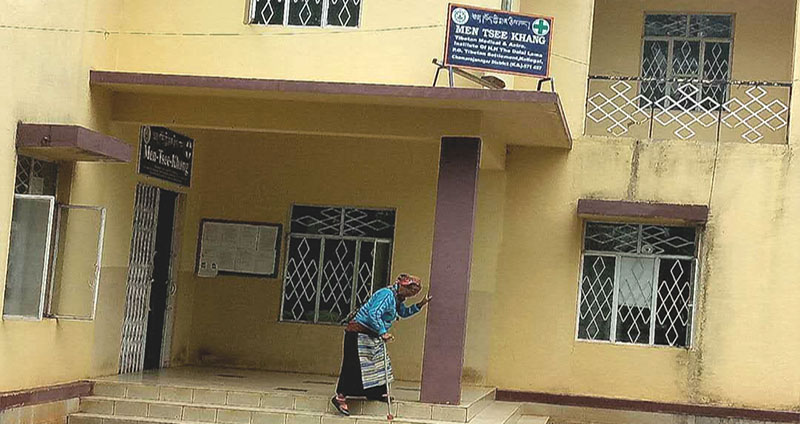Kollegal, Karnataka, India — Kollegal Dhondenling is one of the five Tibetan settlements in the south Indian state of Karnataka. In a series of special features, TPI journalist Tenzin Tsomo reports from the Kollegal Tibetan settlement in the southern state of Karnataka, India.
Mentseekhang (Tibetan Medical & Astro. Institute) is the oldest and largest Sowa-Rigpa Institute in India, with their goal being to improve the lives of people by promoting and delivering traditional Tibetan system of Medicine and Astro. Science practices.
Dr Tenzin Choedon, here speaks about the institute "Mentseekhang was first set up in India on 23 March 1961 in Dharamshala by His Holiness the 14th Dalai Lama. It was first established in Lhasa by his holiness the thirteenth Dalai Lama and has been 102 years since the start of this institute. In Dhondenling, it was established in 1987. Later this new building was granted to us by the co-orporate society and we shifted our institute to here. The area is a square feet of 5000. This new building was built in 1997. All four Tibetan settlements in South India have Mentseekhang, I think mainly due to His holiness having encouraged this institution.
"When Mentseekhang had first started in India, Dr Yeshi Dhondup was the teacher for aspiring doctors of Tibetan medicine of Mentseekhang. There was only one teacher at that time and not many students. Earlier graduating students would be two batches in four years, so at the end of four years, two batches would graduate. Students could enroll once every three to four years. Since 2017, we have started to have one batch graduate each year.
"On His Holiness' birthday, we brought down the elderlies set age for them to get discounts, from 70 to 65. So above the age of 65, all the medicines provided by our institution are free of cost. They only have to pay the GST. About the number of patients, we have much less patients in winter season as compared to the rest of the year. Winter is the season when most of the Tibetan business men and women go off to capital cities to make a living. So at this time, when only the elderlies are left at home, it is difficult for them to travel here. In average we have about 20-30 patients per day.
"Most of the common major complaints in Dhondenling are that of back-pain, joint-pains, upper abdomen pain and Hepatitis. Also diabetes and hypertension is also very common among the Tibetan people. So these are all the primary illnesses. People also come here to treat Sinusitis, common cold and other mild illnesses too. All the medicines are manufactured in Dharamshala but now plans are being made to transfer staff from there to Bangalore. We have obtained an area of ten acres of land at Dalai Lama Institute of Higher Education.
This project is called CAPS, it being College, Administration, Pharmacy and Staff Quarter. This projects aims to increase the enrollment of students per year because that way they can meet the demand for more physicians. This will also make our services more efficient. There are going to be two main centres, one in the north and the other on the south. Now with this project, we will be able to produce one batch of qualified physicians per year.
The Tibetan Medical and Astrological institute was founded by the 13th Dalai Lama, in Lhasa in 1916. In the aftermath of the Chinese occupation of Tibet, His Holiness the 14th Dalai Lama came to India where he re-established the institution on 23 March, 1961. The Institute initially started with a doctor and an astrologer with ten students in two separate campuses in Dharamshala.
In 1967, the two schools were merged together as Men-Tsee-Khang, Tibetan Medical & Astrological Institute in Mecleod Ganj and shifted to the present location in 1982 where the Headquarter of the institutes operates. At present institute is a full-fledged institute with a work force of 140 doctors, 17 astrologers, 274 staff members.
The institute has 51 branch clinics in 16 of the Indian States. The number of clinics in each state is mentioned in bracket/parenthesis. Many of the clinics in the cities and in large Tibetan Refugee Settlements have 3-4 resident doctors, as well as Chief Medical Officers.


![Tibet has a rich history as a sovereign nation until the 1950s when it was invaded by China. [Photo: File]](/images/stories/Pics-2024/March/Tibet-Nation-1940s.jpg#joomlaImage://local-images/stories/Pics-2024/March/Tibet-Nation-1940s.jpg?width=1489&height=878)


















